
Edward Winter

The Joys of Chess by Fred Reinfeld (New York, 1961), page 116
‘Probably more nonsense has been written about planning in chess than any other aspect of the game. ... In fact, as many games are lost through pursuing bad plans as are won by pursuing good ones.’
Source: Better Chess by William Hartston (London, 2003), page 28.
(5884)
C.N. 5884 quoted a couple of sentences about planning from page 28 of Better Chess by W. Hartston (London, 2003). The full section is worth recalling:
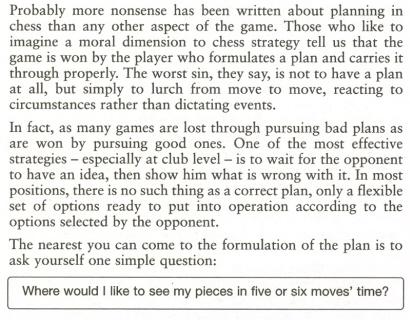
(6694)
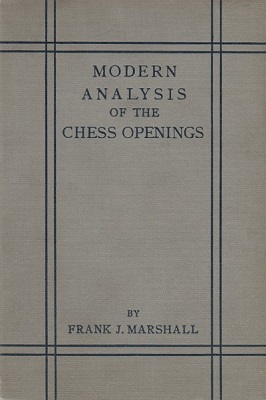
Modern Analysis of the Chess Openings by F.J. Marshall (Amsterdam, 1912/13) has been mentioned a number of times (see, for instance, pages 273-274 of Kings, Commoners and Knaves and page 256 of Chess Facts and Fables). Below, and not for the squeamish, is a complete section of Marshall’s work, from pages 15-17:
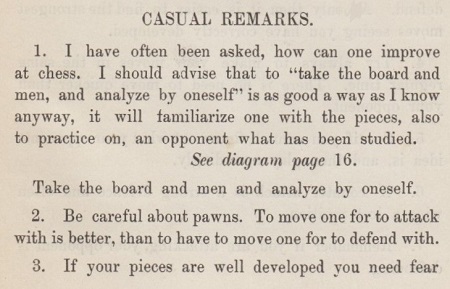
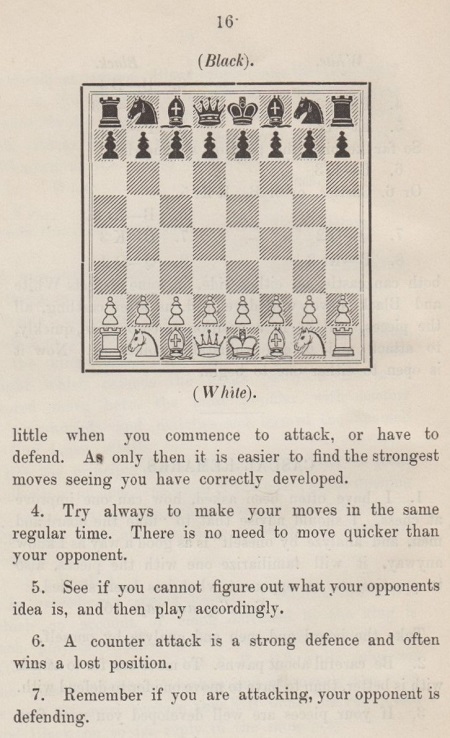
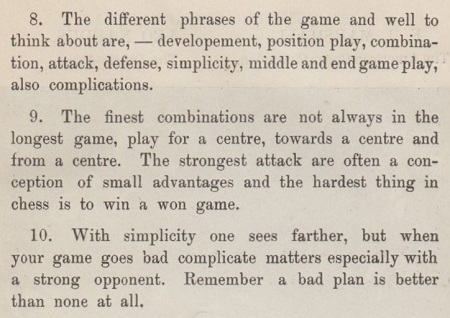
C.N. 2019 (see page 383 of Kings, Commoners and Knaves) extracted Marshall’s final remark, ‘a bad plan is better than none at all’. That advice can be traced back to the nineteenth century, e.g. on page 30 of the anonymous work The Chess Player’s Hand-Book (Philadelphia and New York, 1849):
‘Be careful, then, in all commencements of this super-excellent game, to have a prescribed plan – better have a bad plan than no plan at all.’
On page 210 of the April 1978 Chess Life & Review Julio Kaplan wrote:
‘... all good players agree on one thing: even a bad plan is better than no plan at all.’
How much truth lay in that remark in 1978 is impossible to say, but we wonder whether many chess authorities today would write in such terms.
(9091)
From page 65 of Bréviaire des échecs by S. Tartakower (Paris, 1934):
‘Formez, au plus tôt, un plan du combat: mieux vaut un plan douteux que pas de plan du tout.’
Page 49 of the English edition, A Breviary of Chess (London, 1937), had:
‘As soon as possible evolve a plan of campaign; better a doubtful plan than no plan at all.’
(9179)
Leonard McLaren (Onehunga, New Zealand) points out a remark by John Nunn on page 53 of Understanding Chess Middlegames (London, 2011), in the section on planning:
‘Perhaps the most important advice is that if you can’t think of a good plan, at least don’t play a bad one.’
(9201)
Below is a remark by Reuben Fine on page 34 of Chess Marches On! (New York, 1945), in his annotations to the game between J. Moskowitz (‘Moscowitz’) and A. Yanofsky, Ventnor City, 1942:
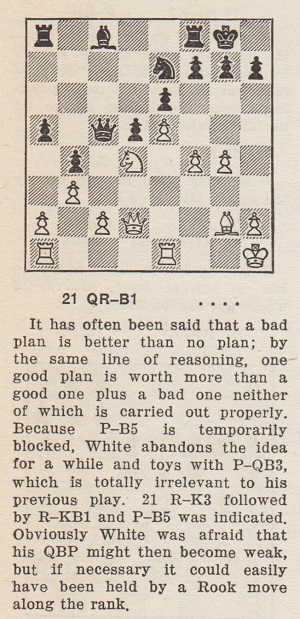
Another passage written by Reuben Fine comes from page 11 of the January 1956 issue of Chess Review:
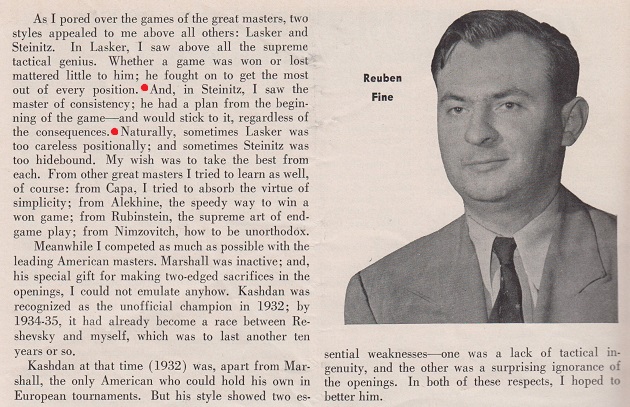
The full article was reproduced on pages 18-23 of Fine’s book Lessons from My Games (New York, 1958).
(10393)
Konstantin Dushenko (Moscow) draws attention to a passage published in 1822:
‘Want of plan may not, in every case, be the cause of all this misery; because accident enters into life for something, both in the unfavorable as well as the favorable side of the question; but we have no hesitation in asserting, that want of plan, as a cause of misery, is as ninety-nine to a hundred. Any plan at all, even a bad plan, is better than none; because those who set out on any plan will, in all probability, sooner discover its errors, if a bad one, and correct them, than those, who set out on no plan, will discover the want of one, and form a good plan. – Plan, in short, is predestination, as conduct is fate.’
Source: An Encyclopædia of Gardening by J.C. Loudon (London, 1822), page 1336.
Our correspondent points out that the text has been mentioned on a ChessPro page, which also has non-chess references from the nineteenth century to ‘Gens una sumus’.
(11067)
From the fine article by Walter Meiden in the April 1982 Chess Life (page 21) C.N. 497 gave this remark by Euwe:
‘Alekhine can see five or six times as much as I can, but I have a plan, and that plan sometimes permits me to win.’
To the Chess Notes main page.
To the Archives for other feature articles.
Copyright: Edward Winter. All rights reserved.